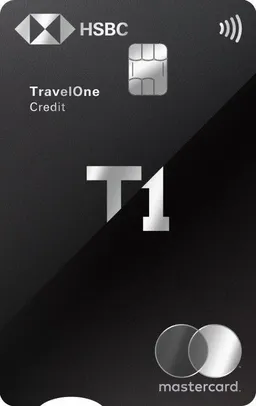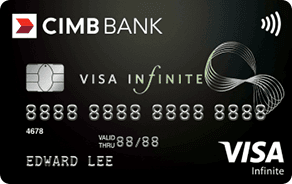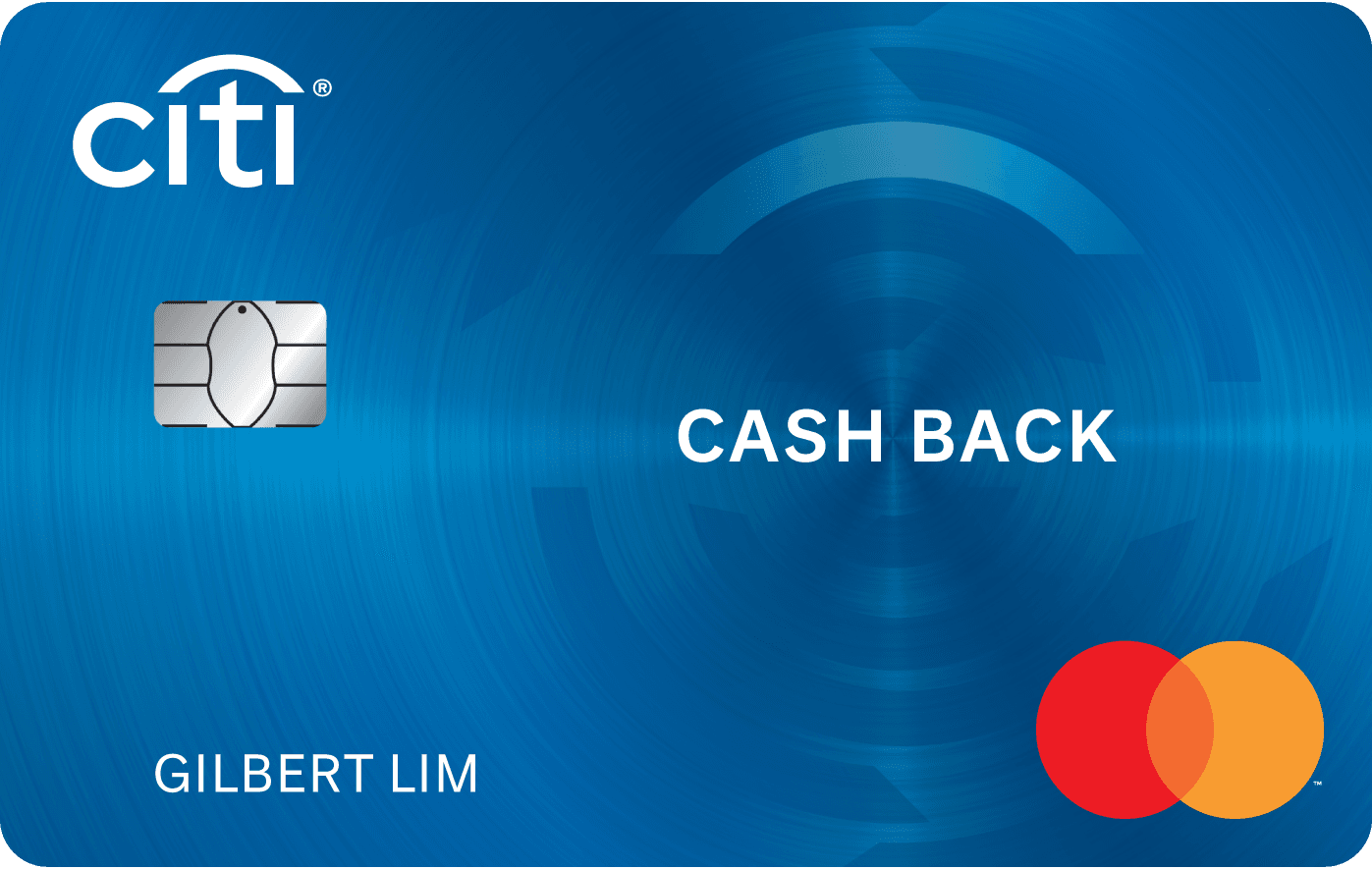A Guide to Foreign Transaction Fees & How to Avoid Them
Updated: 15 Oct 2025
Don't let extra charges eat into your budget for travel or online shopping.

The information on this page is for educational and informational purposes only and should not be considered financial or investment advice. While we review and compare financial products to help you find the best options, we do not provide personalised recommendations or investment advisory services. Always do your own research or consult a licensed financial professional before making any financial decisions.
When using your credit card for international purchases, foreign transaction fees can add up. These fees cover the cost of processing transactions in foreign currencies or outside of Singapore. Fortunately, with the right credit card, you can avoid these extra charges altogether.
What exactly are foreign transaction fees?
A foreign transaction fee is a charge levied by credit card issuers on purchases made in a foreign currency or processed outside of Singapore. These fees are typically a percentage of the transaction amount, usually ranging from 2% to 3%. Essentially, whenever you use your credit card for a purchase that involves a currency conversion or is processed by a bank outside of Singapore, you'll likely incur this fee.
For instance, if you're travelling in Europe and use your credit card to pay for a €100 souvenir, you might see an additional charge of S$3 to S$4.50 on your statement due to the foreign transaction fee. Similarly, even if you're in Singapore and make an online purchase from a US-based retailer in USD, you'll still be subject to this fee.
These fees can quickly accumulate, especially for frequent travellers or those who regularly make international purchases. Therefore, it's crucial to be aware of these charges and understand how to avoid them. Choosing the right credit card with no foreign transaction fees can lead to significant savings in the long run.
Unlock seamless international spending with the right credit card.
Sign up with SingSaver to explore a curated selection of cards tailored to your travel and overseas spending needs. We'll help you find the perfect card to maximise your savings and enhance your travel experiences.
Foreign transaction fees vs. currency exchange fees: Understanding the difference
While both foreign transaction fees and currency conversion fees can appear on your credit card statement for international purchases, they are distinct charges. A foreign transaction fee is levied by your bank for processing a payment that involves a foreign currency or is processed outside of Singapore.
On the other hand, a currency conversion fee, also known as a foreign exchange markup, is applied when the currency of your transaction needs to be converted to SGD. This fee is typically included in the exchange rate used for the conversion, rather than being listed as a separate charge.
For example, if you buy a gadget from a UK website for £500, your bank will first convert this amount to SGD using an exchange rate that includes a markup. This markup is the currency conversion fee. Then, on top of that, you might be charged a foreign transaction fee for the overseas purchase.
Understanding the difference between these two fees can help you make more informed decisions when using your credit card abroad or for international online purchases.
>> MORE: Best travel credit cards
Proven ways to avoid paying foreign transaction fees
The most straightforward way to avoid foreign transaction fees is to use a credit card that doesn't charge them. Many credit cards, particularly those designed for travel, offer this as a key benefit. When choosing a credit card, look for phrases like "no foreign transaction fees" or "0% foreign transaction fees" in the card's features.
Another way to avoid these fees is to be mindful of the currency you use for transactions. If you're making an online purchase from an international retailer, see if they offer the option to pay in SGD. This way, you can potentially avoid the foreign transaction fee, although you might still incur a currency conversion fee.
By being aware of these options and choosing the right credit card for your needs, you can effectively avoid foreign transaction fees and save money on your international purchases.
>> MORE: Multi-currency cards and credit cards for overseas spend
Best credit cards for overseas spending
|
Credit card
|
Key benefits for overseas spending
|
Details
|
|
Citi Cash Back Card
|
- 6% cashback at restaurants and cafes worldwide
- 6% cashback at supermarkets and groceries stores worldwide
- Up to S$1 million complimentary travel insurance when you charge your travel tickets
|
- Cashback card
- Minimum monthly spend of S$800 required to earn cashback - Cashback capped at S$80 per month
|
|
DCS CASHBACK Card
|
- 5% cashback on all eligible transactions
- 1x complimentary airport lounge per annum
- Up to S$1 million complimentary travel insurance
|
- Cashback card
- Minimum monthly spend of S$400 required to earn cashback - Cashback capped at S$50 per month
|
|
HSBC Advance Card
|
- Up to 3.5% cashback on eligible spends
- Up to S$500,000 complimentary travel insurance for you and your family
|
- Cashback card
Base cashback (max. S$70 per month): - 1.5% cashback with no minimum monthly spend
- 2.5% cashback with S$2,000 minimum monthly spend
Everyday+ Rewards cashback (max. S$300 per month):
- Extra 1% cashback with min. monthly deposit of S$2,000 and min. five eligible transactions
|
|
CIMB Visa Infinite Card
|
- Unlimited 2% cashback on travel, overseas spend and online spends in foreign currencies
- 3x complimentary airport lounge visit per annum
- Up to S$1 million complimentary travel insurance
|
- Cashback card
- Minimum monthly spend of S$2,000 required to earn cashback - Premium credit card, requires minimum annual income of S$120,000
|
|
HSBC TravelOne Credit Card
|
- 2.4 mpd on foreign currency transactions (1.2 mpd for local spends)
- 4x complimentary airport lounge visit per annum
- Up to S$100,000 complimentary travel insurance for you and your family
- No cap on miles earned, no minimum spend required
|
- Miles card
|
|
UOB PRVI Miles Card
|
- 2.4 mpd on overseas and online foreign currency transactions (1.4 mpd on local spends)
- 6 mpd on Agoda, Expedia and UOB Travel bookings
- no cap on miles earned, no minimum spend required
|
- Miles card
|
|
DBS Altitude Card
|
- 2.2 mpd on overseas spend (1.3 mpd on local spends)
- 3 mpd on Agoda bookings
- Receive 10,000 bonus miles when you pay the annual fee (S$196.20)
- no cap on miles earned, no minimum spend required
|
- Miles card
|
|
Maybank Horizon Visa Signature Card
|
- 2.8 mpd on air tickets and foreign spends (1.2 mpd on local spends)
- Complimentary airport lounge access with minimum S$1,000 spent at least 3 months prior to lounge visit
- Up to S$1 million complimentary travel insurance when you charge your travel tickets
|
- Miles card
- Minimum spend of S$800 per month required to earn 2.8 mpd |
|
Trust Bank Credit Card
|
Zero foreign transaction fees
|
|
Best for frequent travelers
- Borrow up to 90% of your available credit limit, enjoy interest rates as low as 2.6% p.a., and get flexible payment terms up to 60 months when you apply with promo code CIPSS. T&Cs apply.
- Instant reward redemption with an extensive selection of airline and hotel partners via HSBC Singapore mobile app.
- Accelerated earn rate: up to 2.4 miles for your spending.
- No conversion fee for air miles or hotel points until 31 January 2025.
- Complimentary travel insurance coverage (including COVID-19) and 4x complimentary airport lounge visits for primary cardholders and guests of primary cardholders.
- Receive complimentary access to ENTERTAINER with HSBC app, with over 1,000 1-for-1 deals on dining, lifestyle and travel worldwide.
- Split your purchases across a range of flexible tenures with HSBC Instalment Plans.
- High base minimum annual income requirement of S$65,000 (w.e.f. 1 October 2025) Learn more.
Pros & Cons
| Pros | Cons |
|
|
Best for luxury travel & premium lifestyle
CIMB Visa Infinite Card
- Unlimited 2% cashback on travel, overseas spend and online spend in foreign currencies.
- Unlimited 1% on all other retail spends.
- Principal cardmembers enjoy 3 complimentary global lounge access at more than 1,000 airports annually.
- Charge your full travel fares to your CIMB Visa Infinite and automatically get travel insurance coverage of up to S$1 million for you and your family.
- No annual fees for life + Up to 4 supplementary cards with no annual fees.
- Min. spending of S$2,000 in the statement month to qualify for the 2% cashback.
- Only Singapore citizens and Permanent Residents may apply.
- Minimum annual income requirement: S$120,000.
Pros & Cons
Pros
Unlimited 2% cashback on travel, overseas spend and online spend in foreign currencies.
Unlimited 1% on all other retail spends.
Principal cardmembers enjoy 3 complimentary global lounge access at more than 1,000 airports annually.
Charge your full travel fares to your CIMB Visa Infinite and automatically get travel insurance coverage of up to S$1 million for you and your family.
No annual fees for life + Up to 4 supplementary cards with no annual fees.
Cons
Min. spending of S$2,000 in the statement month to qualify for the 2% cashback.
Only Singapore citizens and Permanent Residents may apply.
Minimum annual income requirement: S$120,000.
Best for high cashback on essentials
Citi Cash Back Card
- 6% cashback on dining and grocery spending (local & overseas).
- 8% cashback on petrol and private commute (local & overseas).
- Up to 23.64% savings at Caltex, Esso and Shell, inclusive of 8% cashback for petrol spending.
- With Citi PayAll you can earn Citi Miles, Citi ThankYou PointsSM or Cash Back when you pay your bills with your Citi Credit Card.
- Up to S$1 million travel insurance coverage when you charge your travel tickets to this card. There will be a revision made to the Citi Credit Cards complimentary travel insurance. The Travel Insurance coverage in respect of a Trip charged to Citi Cash Back Card will be updated to end on 31 March 2026. For more information, please click here.
- 0.20% cashback for all other spending, even if you do not meet the min. monthly spend.
- Min. monthly spend of S$800 required to earn bonus cashback.
- S$80 combined cashback cap across all categories.
Pros & Cons
| Pros | Cons |
|
|
Using cash vs credit cards abroad: Which saves you more?
While using cash might seem like a surefire way to avoid foreign transaction fees, it's not always the most practical or safe option, especially for international travel. Carrying large amounts of cash can make you a target for theft, and losing your cash could leave you stranded in a foreign country.
Moreover, exchanging currency often involves unfavourable exchange rates and additional fees, which can eat into your travel budget. You might end up paying more in conversion fees than you would have with a credit card that charges foreign transaction fees.
However, having some cash on hand can be useful for smaller purchases or in situations where credit cards aren't accepted. Consider striking a balance between using cash and credit cards, opting for a credit card with no foreign transaction fees (and the outlook of favourable rewards) for larger purchases and keeping a small amount of cash for incidentals.
Ultimately, the decision of whether to use cash or credit cards abroad depends on your individual circumstances and risk tolerance. Weigh the pros and cons of each option carefully before making a decision.
Find the perfect card for your global adventures.
Whether you're a seasoned traveller or an occasional overseas shopper, the right credit card can make your international spending more rewarding. Check out our extensive list of the best credit cards for overseas spending to discover the ideal card to complement your lifestyle and financial goals.



